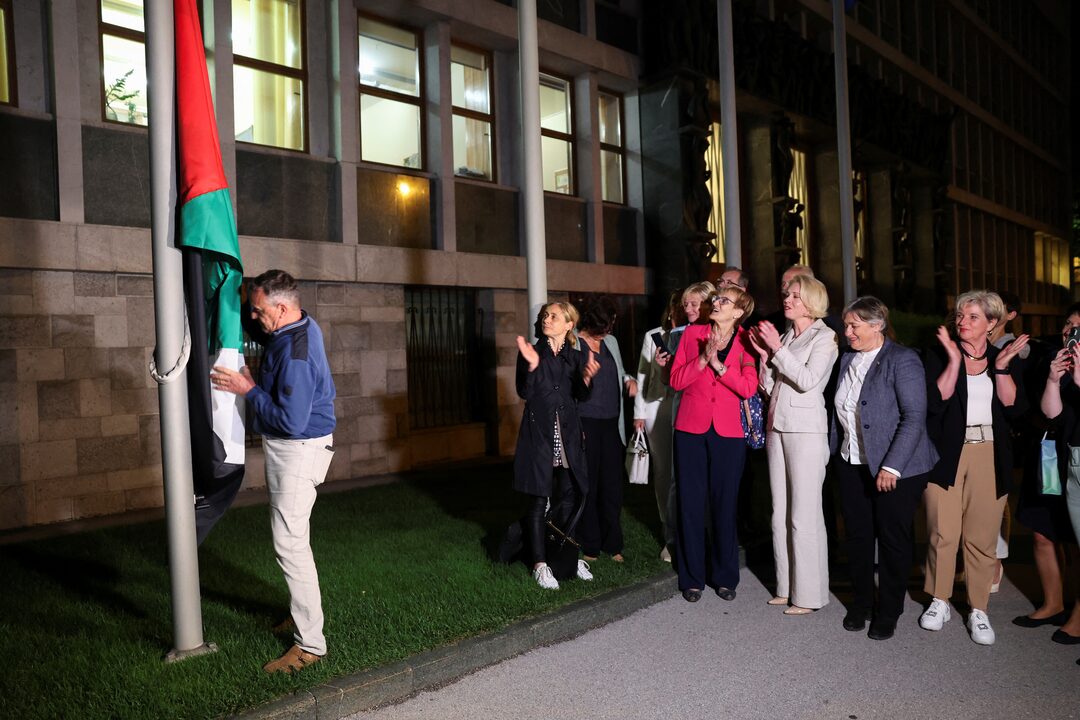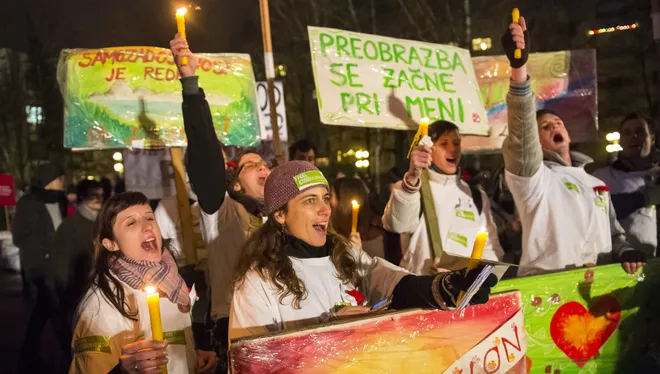Referendum Chaos in Slovenia
In a stunning turn of events, the ruling Freedom Movement in Slovenia has announced plans to call a consultative referendum on NATO membership, just minutes after losing a parliamentary vote on a referendum regarding defense spending. The urgency of this demand reveals deep divisions within the government and raises questions about the future direction of Slovenia"s defense and foreign policy.
Public Sentiment on NATO Membership
Prime Minister Robert Golob has positioned this referendum as a crucial gauge of the people"s will, asserting that the choice is binary: remain in NATO or exit the alliance altogether. As reported by GOV.SI, Slovenia"s NATO membership has been a cornerstone of national security since its post-independence aspirations. However, the question remains whether the public truly understands the implications of such a decisive vote.

Slovenia becomes latest EU country to recognise Palestinian ...
Political Turmoil and Coalition Strife
The recent parliamentary vote saw the Freedom Movement split from its junior partners, including the Left and other conservative factions, who united to propose a referendum on increased defense spending. Golob"s criticism of this initiative as "senseless" reveals a growing rift within the coalition. Nataša Avšič Bogovič, deputy group leader for the Freedom Movement, argues that the NATO referendum is the only fair question, dismissing all others as manipulative. The implications of this divide could have far-reaching consequences for Slovenia"s political landscape.
The Role of NATO in Slovenian Security
According to NATO, membership allows Slovenia to address security challenges effectively, reinforcing its commitment to Euro-Atlantic values. Yet, questions about increased defense spending have prompted a backlash from citizens who may now feel their voices are overshadowed by political maneuvering. This referendum could serve as a litmus test for public support of NATO, particularly in the context of rising tensions in Eastern Europe.

In Slovenia, traffic cameras become a flash point
Implications for Civil Rights and Governance
The push for a referendum on NATO membership is indicative of a deeper struggle for democratic governance and civil rights in Slovenia. As a former civil rights attorney, I recognize that the framing of this referendum could either empower citizen engagement or further entrench elite interests. The decision to prioritize NATO membership over pressing domestic issues, such as health care and social justice, raises concerns about whether the government is genuinely representing the populace or merely deflecting from its failures.



![[Video] Gunfire between Iraqi security forces and Sadr militias in Baghdad](/_next/image?url=%2Fapi%2Fimage%2Fthumbnails%2Fthumbnail-1768343508874-4redb-thumbnail.jpg&w=3840&q=75)
